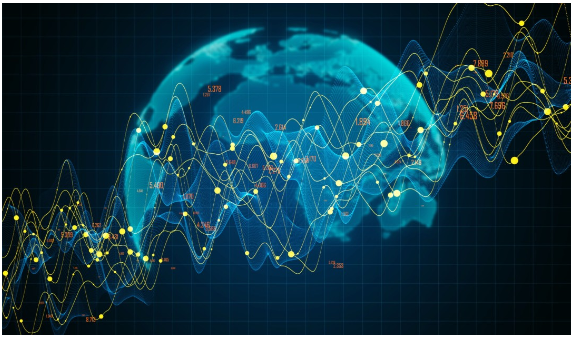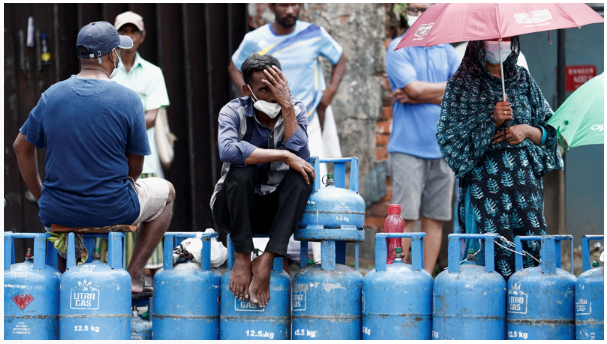 The global economy continues to struggle with inflation, rising energy costs, and geopolitical uncertainties that are creating a challenging environment for policymakers, businesses, and consumers alike. Economic growth has slowed in many parts of the world as central banks maintain tight monetary policies in an effort to curb persistent inflation.
The global economy continues to struggle with inflation, rising energy costs, and geopolitical uncertainties that are creating a challenging environment for policymakers, businesses, and consumers alike. Economic growth has slowed in many parts of the world as central banks maintain tight monetary policies in an effort to curb persistent inflation.
Despite aggressive interest rate hikes by major central banks, inflation remains a pressing issue for both advanced and emerging economies. In the U.S. and Europe, the cost of living continues to rise as energy prices, driven by an ongoing energy crisis, put upward pressure on goods and services. The global supply chain, while recovering from pandemic disruptions, is still experiencing bottlenecks due to geopolitical instability, particularly in Eastern Europe and the Middle East.
The European Central Bank (ECB) and the U.S. Federal Reserve are facing difficult choices. While their rate hikes have curbed demand, inflation, particularly in food and energy prices, is proving more resistant to traditional monetary policy measures. Consumers are feeling the pinch as wages fail to keep pace with the rising cost of essentials, leading to slower consumer spending and reduced economic growth.
One of the key drivers of today’s inflation is the sharp rise in global energy prices. Oil has surpassed $100 per barrel due to reduced output from OPEC+ nations and geopolitical conflicts that have disrupted energy supplies. Europe, heavily dependent on natural gas imports, is facing a particularly acute energy crisis ahead of the winter months, prompting governments to introduce emergency measures to manage demand and avoid energy shortages.
In response, some countries are accelerating their investment in renewable energy and nuclear power to reduce dependency on volatile global energy markets. However, these long-term solutions provide little immediate relief, leaving many economies vulnerable to further price shocks.
Global geopolitical tensions are exacerbating the economic challenges. The ongoing U.S.-China trade disputes, particularly over technology and semiconductors, are disrupting global supply chains, leading to delays in production and increased costs for manufacturers. Additionally, conflicts in the Middle East and Eastern Europe are contributing to the rise in energy prices and creating uncertainty in financial markets.
These geopolitical issues are pushing many businesses to rethink their global supply chains, with some shifting production closer to home or to more politically stable regions. However, these adjustments take time, and the economic impact is being felt in both developed and emerging markets.
Emerging economies are facing a dual challenge of rising inflation and mounting debt burdens. Many developing countries, especially in Africa and Latin America, have significant dollar-denominated debt, and the strong U.S. dollar, coupled with higher interest rates, is making it more difficult for them to service these debts. Inflation in these regions is also being driven by higher food and energy costs, leading to increased poverty and social unrest.
 Governments in emerging markets are calling for international financial assistance and debt restructuring to alleviate their economic challenges, but progress has been slow. The International Monetary Fund (IMF) and World Bank have been engaged in discussions to provide relief, but the global economic slowdown is limiting the ability of wealthy nations to offer substantial aid.
Governments in emerging markets are calling for international financial assistance and debt restructuring to alleviate their economic challenges, but progress has been slow. The International Monetary Fund (IMF) and World Bank have been engaged in discussions to provide relief, but the global economic slowdown is limiting the ability of wealthy nations to offer substantial aid.
The global economy is expected to grow at a slower pace in the remainder of 2024. The U.S. economy, though resilient, is showing signs of slowing down as high interest rates dampen consumer spending and investment. Europe is in a more precarious position, with some countries teetering on the edge of recession due to high energy prices and sluggish demand.
China’s economic recovery, once seen as a beacon of hope, has also underwhelmed. The country’s real estate sector is in crisis, and its exports are being hurt by weak global demand. As a result, China’s economic slowdown is affecting other countries that rely heavily on Chinese demand for commodities and goods, such as Australia and Brazil.
With rising input costs and subdued consumer spending, many businesses are seeing their profit margins squeezed. Corporate earnings reports for the third quarter are expected to reflect this trend, with companies in sectors such as retail, manufacturing, and hospitality particularly affected by inflationary pressures. In contrast, energy companies and those in essential goods sectors are benefiting from the current economic climate, posting strong profits as prices rise.
The global economy remains in a precarious position. Inflation, driven by soaring energy prices, continues to pose a significant challenge, and while central banks remain focused on combating price pressures, their efforts are slowing economic growth. Geopolitical tensions and supply chain disruptions further complicate the outlook, leaving businesses and consumers bracing for continued uncertainty. Policymakers worldwide are now walking a tightrope, balancing the need for economic stability with the challenge of containing inflation and addressing long-term structural issues.
Ennywealth


